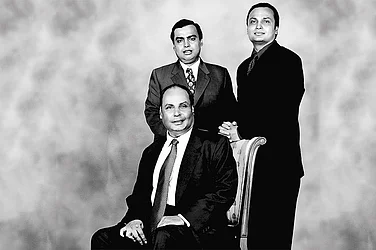External affairs minister Subrahmanyam Jaishankar is India’s man of the moment. Since the Russia-Ukraine war began, and India came under attack for not toeing the widely advocated “morally correct” line of boycotting the former, he has batted many a bouncer with aplomb, turning every single one of them into an opportunity to hit out forcefully at everyone who has raised eyebrows at India’s neutrality in the war. With his sharp replies, he has emerged as the perfect voice to pitch Prime Minister Narendra Modi’s views on the international stage. The general consensus among people is that the minister has succeeded in presenting before the world the image of a stronger India that rides on its growing self-confidence as a nation with a $3.1 trillion economy and massive market that global companies hope to crack. As an emerging Asian nation with a population of over 1.4 billion, India cannot be ignored or bullied into submission, a point that Jaishankar has repeatedly made in his retorts
The Modern Diplomat
Jaishankar carries this quiet confidence in dealing with the world. His responses to hard-hitting questions from the Western media have won him many admirers. Not that New Delhi has taken a 180° turn in foreign policy. Strategic autonomy still remains India’s catch word, though the phrase is disliked by the current dispensation in New Delhi. The minister himself dubs Nehruvian Non-Aligned Movement as “political romanticism”. But the new policy that Jaishankar speaks of is very much in line with the Nehruvian thought. India is looking at its own interest and what is best for its people while making policy choices.
Jaishankar speaks the language of modern diplomacy and knows exactly how to manoeuvre India’s moves in the complex world of international politics. He has been able to confidently and unapologetically present India’s case to the rest of the world. His workmanship was on public display when the Modi government came under tremendous pressure from the US and Europe to stop buying Russian oil in the early days of the Ukraine war. The invasion of Ukraine by Russian president Vladimir Putin’s forces had led to the slapping of unprecedented sanctions against Russia, including on the movement of its crude oil, to deter it from going further into the war. To counter these measures, Russia began to offer oil at heavily discounted rates, something that India, an energy guzzler always on the lookout for oil, was not willing to pass. Seizing the opportunity, New Delhi lifted large quantities of oil from Russia. European leaders lectured India on the need for democracies to stand together to protect the sovereignty of a smaller nation being trampled by a bigger, more powerful neighbour. Since then, Jaishankar, as the external affairs minister, has been questioned multiple times on the issue on global platforms. And, he has never disappointed. When the occasion demands, he does not mince his words.
Famous Snubs
At a news conference in Washington in April this year, after the India-US 2+2 dialogue, Jaishankar was asked by a reporter about purchase of Russian oil. “I noticed you refer to oil purchases. If you are looking at energy purchases from Russia, I would suggest that your attention should be focused on Europe. We do buy some energy, which is necessary for our energy security. But I suspect, looking at the figures, probably our total purchases for the month would be less than what Europe does in an afternoon,” he replied. US secretary of state Antony Blinken, defence secretary Lloyd Austin and defence minister Rajnath Singh were present at the presser.
At GLOBESEC 22 in Slovakia, he famously said, “Europe has to grow out of the mindset that Europe’s problems are the world’s problems but the world’s problems are not Europe’s problems,” taking an apparent dig at European nations often turning a blind eye to events affecting Asia. When asked which global power axis India would join—the US led or the one led by China—he bluntly answered, “This is a construct you are trying to impose on me.” It was not necessary for India to join any axis, he said—the country with one-fifth of the global population and fifth largest economy was entitled to have its own side, weigh its interests and make choices that would be a balance of its values and interests.
He has not shied away from calling out Europe for its hypocrisy. When a moral dimension—India’s oil import funding Russia’s war machine in Ukraine—was introduced to the question, he said. “Tell me, buying Russian gas is not funding the war? It’s only Indian money and oil coming to India which funds but it’s not gas coming to Europe which funds? Let’s be a little even-handed.”
Jaishankar is a newly minted politician. He joined the Bharatiya Janata Party in 2019, months after taking over as the foreign minister. He was a professional diplomat who ended his career on a high as the foreign secretary of India from 2015–18. He also had a brief stint with the Tatas before being inducted into the cabinet by Modi who had noticed his calibre when, as the chief minister of Gujarat, he had visited China where Jaishankar was India’s ambassador.
It is his ability to clearly articulate India’s policies firmly without being apologetic that has been the hallmark of Jaishankar’s tenure as foreign minister. People love to hear him. Videos of his news conferences go viral. The fact that the minister can fire back instant retorts to those who try to finger India is appreciated by the current generation of ardent nationalists. He has the polish and sophistication often lacking in the typical politician, having been a long-serving diplomat himself. These qualities make him the man Modi can trust to deal with diplomatic pressure that geopolitics brings on India.


























